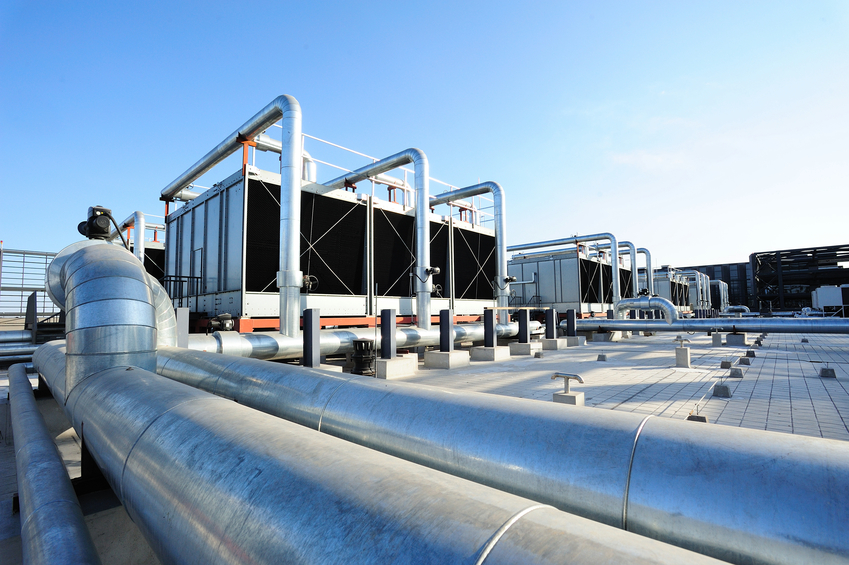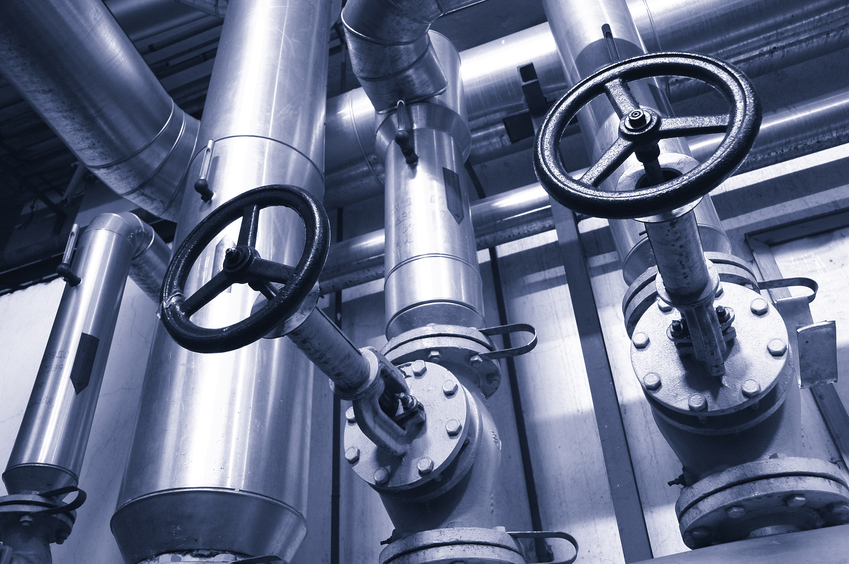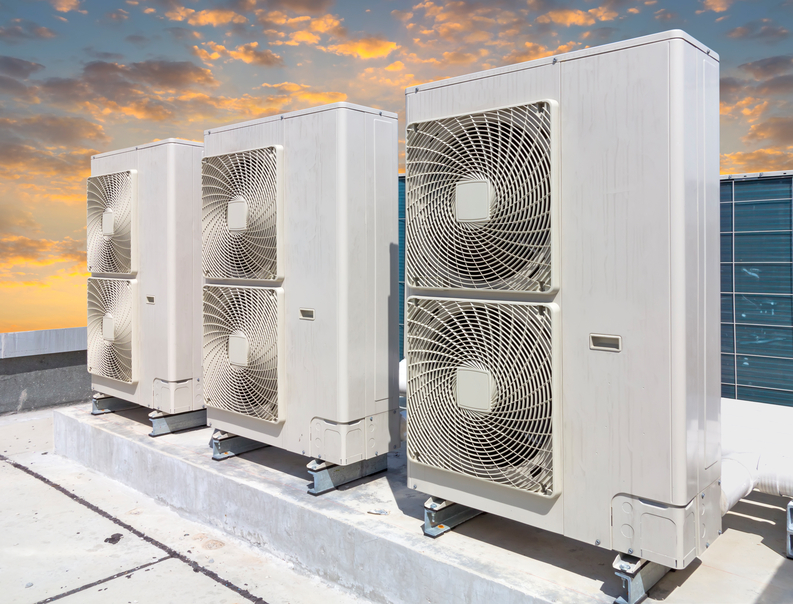Mechanical and Florida Laws, Rules & Ethics 18 PDH Discount Package 3
Courses in this Package
An Introduction to Basic Mechanical Components (M03-043)
Liquid Process Piping, Part 1: General Piping Design (M03-023)
Fan and Pump Technology Overview and their Energy Saving Opportunities (M09-002)
Decarbonizing HVAC and Water Heating in Commercial Buildings (M01-025)
Engineering Laws, Rules and Ethics for Florida Professional Engineers (FL2-006)

This online engineering PDH course provides an overview of the purpose, types and operation of several basic mechanical components.
These components which include air compressors, boilers, cooling towers, steam traps, filters and strainers; are found at the heart of many plants and have widespread applications in several industries.
This 3 PDH online course is applicable to mechanical and industrial engineers, operators, maintenance personnel, and other technical staff who are interested in gaining a better understanding of the operation of the different mechanical equipment.
This PE continuing education course is intended to provide you with the following specific knowledge and skills:
- Understanding the various types of air compressors, operation and safety hazards
- Familiarizing with boilers
- Learning the purpose of the cooling tower and its various types
- Learning the fundamentals of steam traps and their different types
- Distinguishing between filters and strainers and learning their different types
Upon successful completion of the quiz, print your Certificate of Completion instantly. (Note: if you are paying by check or money order, you will be able to print it after we receive your payment.) For your convenience, we will also email it to you. Please note that you can log in to your account at any time to access and print your Certificate of Completion.

This online engineering PDH course presents general piping design calculations and requirements for all piping systems regardless of construction material. Most of these calculations and requirements are provided and regulated by the ASME B31.3 code, respectively.
The liquid process piping manual provides information for the design of liquid process piping systems including all pipe and appurtenances which are used to convey liquids to, from and between pumping, storage and treatment units but which are not integral to any unit.
This 3 PDH online course is applicable to engineers, designers, contractors, building professionals, maintenance personnel, and manufacturers who are interested in gaining a better understanding of general piping design of liquid process piping.
This PE continuing education course is intended to provide you with the following specific knowledge and skills:
- Understanding the properties of construction materials
- Understanding the characteristics of the design pressure
- Learning how to size piping systems
- Understanding the stress analysis of piping systems
- Familiarizing with pipe components such as flanges, gaskets and bolting
- Understanding how pipe components affect the piping design
- Understanding how to properly identify piping
- Understanding the basics of piping supports
- Familiarizing with the different testing and flushing methods for piping systems
In this professional engineering CEU course, you need to review Chapter 3, "General Piping Design" of the "Liquid Process Piping" engineering manual, published by the United States Army of Corps of Engineers (USACE), Publication Number EM 1110-1-4008.
Once you complete your course review, you need to take a multiple-choice quiz consisting of twenty (20) questions to earn 3 PDH credits. The quiz will be based on Chapter 3 of this USACE publication.
Upon successful completion of the quiz, print your Certificate of Completion instantly. (Note: if you are paying by check or money order, you will be able to print it after we receive your payment.) For your convenience, we will also email it to you. Please note that you can log in to your account at any time to access and print your Certificate of Completion.

This online engineering PDH course provides a technical and market analysis of pumps and fans as they pertain to commercial and residential buildings, as well as key conclusions regarding the R&D opportunities that can help achieve energy savings goals.
The Building Technologies Office (BTO) within the Department of Energy’s (DOE) Office of Energy Efficiency and Renewable Energy (EERE) works with researchers and the industry to develop and deploy technologies that can substantially reduce energy consumption in residential and commercial buildings.
The course highlights an annual technical savings potential of approximately 2.6 and 0.63 quads of primary energy for fans and pumps, respectively, assuming 100% adoption of best-in-class energy efficient technologies in the U.S. for the applicable installed base.
Four R&D opportunity areas for fans and five R&D opportunity areas for pumps are identified that will help to achieve the required savings potential, and therefore, BTO’s energy savings goals. These key opportunities for R&D are primarily focused on systems-level controls and technological improvements such as motors.
This 9 PDH online course is applicable to HVAC, mechanical and electrical engineers, and professionals who are interested in learning more about fan and pump technologies and their energy saving opportunities.
This PE continuing education course is intended to provide you with the following specific knowledge and skills:
- Familiarizing with the state and type of pump and fan technologies used in residential and commercial appliances, equipment, and systems
- Learning about fan energy saving opportunities for residential and commercial buildings
- Learning about Pump energy saving opportunities for residential and commercial buildings
- Identifying potential areas where R&D efforts, through BTO or others, could boost efficiency of fans, pumps, and their systems
Upon successful completion of the quiz, print your Certificate of Completion instantly. (Note: if you are paying by check or money order, you will be able to print it after we receive your payment.) For your convenience, we will also email it to you. Please note that you can log in to your account at any time to access and print your Certificate of Completion.

This online engineering PDH course presents the technical, economic, and feasibility assessment for converting to all-electric heating solutions.
Electrification of building loads presents a significant opportunity to reduce site-level greenhouse gas (GHG) emissions, especially when combined with renewable and zero-carbon electricity resources. Electrification involves the conversion of a building system that would traditionally use fossil fuels (such as, natural gas, fuel oil, or propane) to the use of electrical power, which could be a key strategy in decarbonization. The course focuses on electrification and decarbonization of space heating and water heating loads using electric heat pump systems.
This 1 PDH online course is applicable to mechanical, energy, and facility engineers as well as other technical professionals interested in learning about electrification and decarbonization of space and water heating loads using electric heat pump systems.
This PE continuing education course is intended to provide you with the following specific knowledge and skills:
- Familiarizing with electrification options for HVAC and water heating
- Understanding the evaluation checklist for electrification assessment
- Learning some case studies that focus on heating electrification and decarbonization of commercial buildings
- Knowing the industry transition to low-GWP refrigerants
Upon successful completion of the quiz, print your Certificate of Completion instantly. (Note: if you are paying by check or money order, you will be able to print it after we receive your payment.) For your convenience, we will also email it to you. Please note that you can log in to your account at any time to access and print your Certificate of Completion.

Upon successful completion of the “Engineering Laws, Rules and Ethics for Florida Professional Engineers” course, we will report your PDH credits for this course to the FBPE within 2 business days. Therefore, it is imperative that you indicate your Florida PE license number in your CED account so that we can successfully do so. Once reported, please allow up to 48 hours for the FBPE to update their database.
This online PDH course is a FL approved Engineering Laws, Rules and Ethics course and is being offered by Continuing Education and Development, Inc, a FL approved Continuing Education Provider (CEP No. 0004183).
The first part of this course begins with an overview of the Laws and Rules governing the practice of engineering in the State of Florida (Chapter 1) including:
- Florida Statutes, Chapter 455, “Department of Business and Professional Regulation”
- Florida Statutes, Chapter 471, “Engineering”
- Florida Administrative Code, 61G15, F.A.C., “Florida Board of Professional Engineers”
Then it continues to address the rules amended, adopted or otherwise repealed from 61G15, F.A.C. (Chapter 2) as well as the changes to Chapters 455, F.S. and 471, F.S. (Chapter 3), within the preceding biennium, as applicable.
The second part of this course presents engineering ethics and the principles of professional responsibility (Chapter 4). It further illustrates the application of Chapters 455 and 471, F.S. to a randomly selected set of ethical and disciplinary cases (Chapter 5).
This 2 PDH online engineering course is applicable to Professional Engineers licensed in the State of Florida and who are required to demonstrate continuing professional competency in the Florida Laws, Rules and Ethics as a condition of license renewal. For each renewal period, every licensee must complete eighteen (18) professional development hours as follows:
- One hour must relate to this chapter and the rules adopted under this chapter;
- One hour must relate to professional ethics;
- Four hours must relate to the licensee’s area of practice; and
- The remaining hours may relate to any topic pertinent to the practice of engineering.
This PE continuing education engineering course is intended to provide you with the following specific knowledge and skills:
- Understanding the different Florida laws and rules regulating the practice of engineering in the State of Florida and their application to Professional Engineers
- Learning the rules adopted, amended or repealed from 61G15 within the preceding biennium
- Learning the changes made to Chapters 455, F.S. and 471, F.S. within the preceding biennium
- Understanding ethical behavior and the principles of professional responsibility in the field of engineering
- Understanding the general application of Chapters 455 and 471, F.S. to various ethical and disciplinary cases of Professional Engineers
Upon successful completion of the quiz, print your Certificate of Completion instantly. (Note: if you are paying by check or money order, you will be able to print it after we receive your payment.) For your convenience, we will also email it to you. Please note that you can log in to your account at any time to access and print your Certificate of Completion.